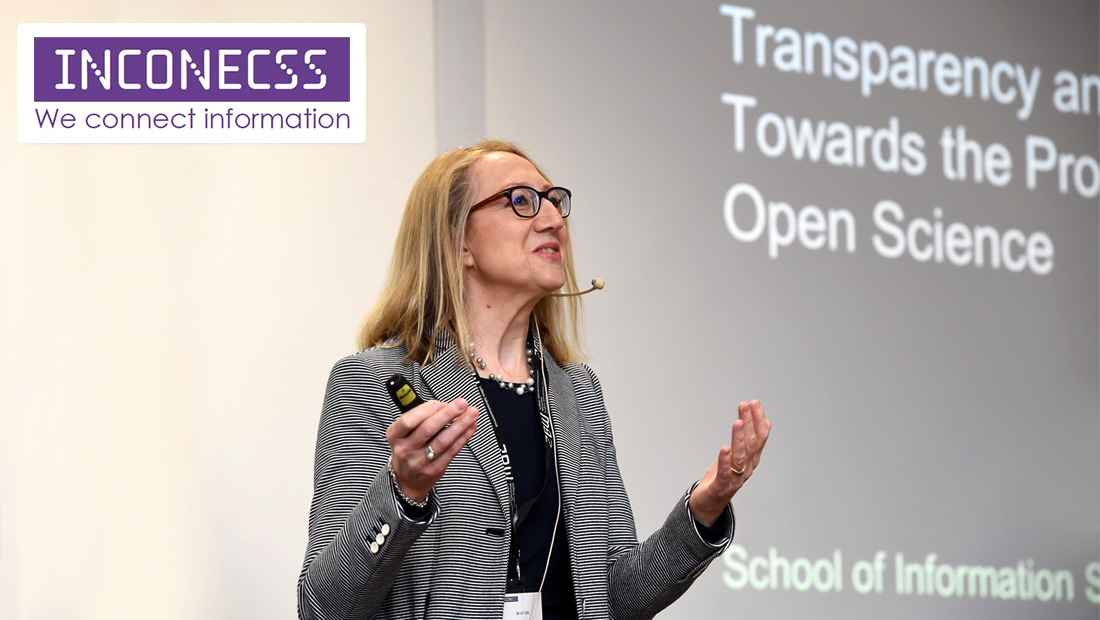
Building Communities of Librarians and Information Specialists in Business and Economics
Librarians and other information specialists supporting researchers in Economics and Business Studies from 21 countries joined the first INCONECSS conference in Berlin to exchange best practices and opinions and help each other to improve and enhance their local services.
von Tamara Pianos, Andrea Schlotfeldt, Olaf Siegert und Karin Wortmann
The INCONECSS (International Conference on Economics and Business Information) was initiated by ZBW to bring people together to address issues relating to economics and business information. 95 colleagues from 21 countries discussed topics ranging from staff development issues to strategic development of new services, from research data management questions to Open Access on April 19 – 20, 2016 in Berlin.
Opening Keynote: “Transparency and Trust: Towards the Promise of Open Science”
Liz Lyon, currently visiting professor at the University of Pittsburgh, opened with some thoughts on what transparency and trust may mean nowadays. One example for matters of transparency and trust is peer review. The traditional peer review system with a severe lack of transparency has rightly come under fire. New ways of peer-review are emerging that may reinstate trust by offering complete transparency. The peer review system should not only be transparent. Reviewers should also get credits for their work, so that it is worthwhile for everyone to invest precious time into the reviewing system. Liz Lyon mentioned GigaScience as one example of this way of conduct.
“How can workforce development catalyze transparency and trust?” was one of the important questions. One conclusion was to include these issues in MLIS programs’ curricula. Liz Lyon appealed to the audience to re-engineer library research data services to support transparency and trust.
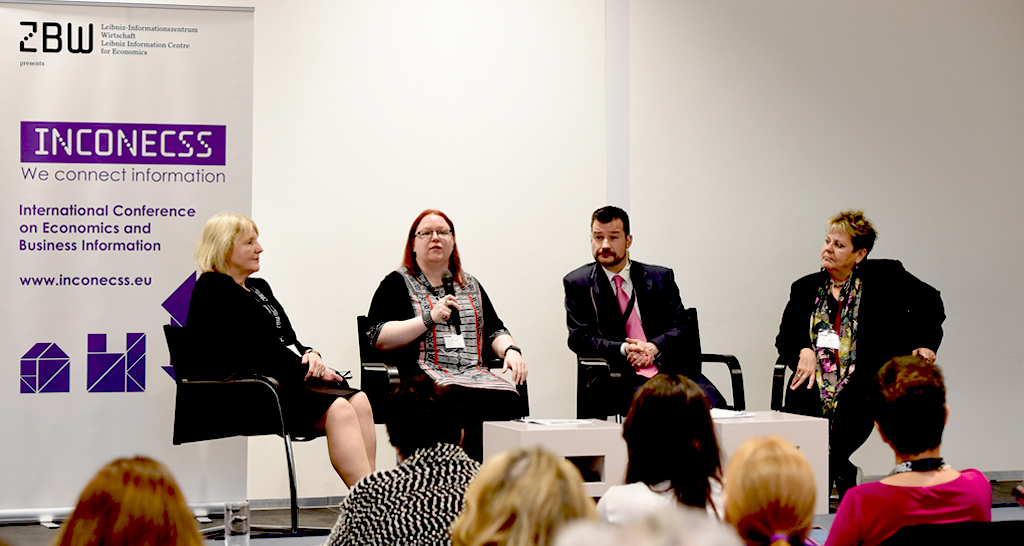
Put the Library in the center of the university with special services that researchers need
Colleagues from UK and Spain shared their experiences of changing the library’s services in order to better support the research community in the session “research support”. Mary Betts Gray (Cranfield University) Teresa Malo de Molina (Universidad Carlos II Madrid) as well as Yvonne Budden and Antony Brewerton (University of Warwick) shared their experiences and ideas on working together with other parts of the university like a newly established research and innovation office (RIO) or groups of researchers.
Sometimes organizational structures need to be adapted to make sure innovation can happen, responsibilities are clear and overlap of work is avoided. Thus libraries can regain or preserve a central position in a university when it is obvious to researchers and/or administration that the library is a useful supporter of diverse research activities.
One example: Rankings are important for universities. If the library provides the data or the library can help with ORCID for all for example, this puts the library in the middle of the university. The foundation is to “understand researchers and support them”. So communication and creative ideas help to grow a community, by jointly celebrating successes like the completion of a PhD for instance. Warwick University Library is also responsible for hosting Exchanges and other open access journals edited by the university’s researchers. This is another example of university-library-cooperation.
One very good advice in this context by Anthony Brewerton was: “Do the things that make you special!”
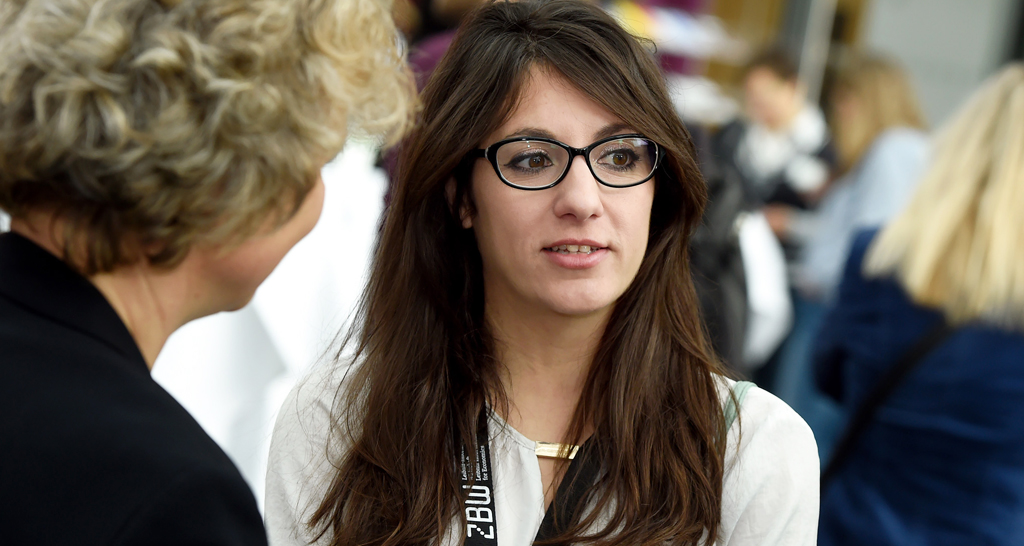
E-Reading in academic libraries: the long and winding road
Belèn Real (IE Library, Spain), Michel Fraysse (Universitè Toulouse 1 Capitole France ) and Michaela Hammerl (Bavarian State Library, Germany) provided in their presentations during the eBook-Workshop valuable insights into the situation of licensing and acquisition of eBooks for libraries in three countries, showing it from a legal and practical point of view.
Obviously, the following discussion of the participants from many countries such as Estonia, Italy, UK, Spain and France showed that the problems are similar everywhere: eBooks are still too expensive, important titles are not available, collections are often closed and interlibrary loan models do not exist or are very much restricted. Other barriers are serious problems with DRM and a general preference for print among users. It was generally acknowledged that the Pick & Choose model (Patron Driven Acquisition) has proved to be most efficient in practice so far.
The evaluation of the user perspective towards eBooks revealed that users wish to have the all-in-one-solution: easy access any time, any place, anywhere for all relevant literature on all electronic devices, even on a smart phone, including the right to download and to save content! These needs contrast strongly with legal obstacles such as restrictions for printing, downloading and sharing and technical barriers due to DRM. Also, we have to take note of a different usage of printed books and eBooks: eBooks are useful for short excerpts, just to have a short look on a certain aspect or chapter, whilst printed books are still essential for longer reading and in-depth analyses.
Enhanced eBooks were also a topic: There is a variety of functions and services available that are not exhausted yet, such as multimedia, audio as well as interactive elements, multiple search and navigation options, highlighting and annotating, text-to-speech and automatic citations. The technical opportunities are promising – only: We do not know if scientists and students will endorse them and are going to use them. Last but not least, participants underlined the importance for institutions to receive high-quality metadata as well as usage statistics on a regular basis.
To sum up the discussion: publishers and aggregators ought to take the problems and wishes of institutions and users seriously and should be open to more flexible and affordable business models. And the librarians? We mean well – but have we asked the users?
Use Interoperable Standards and Take Responsibility to Offer a Service that is Central to University Needs – Current Research Information Systems (CRIS)
In a Workshop on CRIS, Anna Clements (University of St Andrews Library), Michelle Mennielli, Andrea Bollini (both CINECA / and EuroCRIS), and Friedrich Summann (University Library Bielefeld) presented issues of interoperability and why CRISs are the key to the future of research libraries.
The role of EuroCRIS was described and it was discussed why Repositories and CRISs are complementary and should work together. Examples of a number of working DSpace-CRIS installations like e.g. PolyU in Hong Kong were presented. Libraries can play an important role for their universities, if they take over responsibility for the CRIS. The condition is often that the library has already qualifications in Open Access. This creates opportunities: Libraries can create something new out of the data, that research centers would not come up with. So, with the new services other stakeholders understand the importance of the library. If libraries focus on what serves the community and what makes their live easier, like CRIS-related services, this can be a strong library asset. Libraries also need to be confident in their abilities and take over responsibilities for analyzing data and visualizing it among others.
Some hands-on ideas on how to get started with a CRIS: First get to know the researchers needs. Then you need a champion (such as dean, vice director) to promote the idea. You can mention other institutions that are already successful. If you employ new staff, get data managers rather than librarians. Get people who understand the cloud and innovation.
Questions on standardization and interoperability should always be kept in mind. The three aspects of interoperability (identifier, vocabulary and exchange format) should work together. There is always an overlap between CRIS systems and institutional repositories (IR) with respect to people, institutions, publications but also projects and so forth. The IR-data-model is not enough to describe the relations, since it was not created for this purpose, but systems can work together if data-model issues are considered. If you have two different systems that partly use the same data, you should always make sure that data flows only in one direction, not back and forth. Identifiers like ORCID can be very useful if a critical number of people use them. If a national agency promotes the use – as in Italy for instance – it can boost the coverage immensely. The library can help researchers with issues surrounding identifiers. Thus, libraries can show their expertise.
“Half a Brain and the right attitude”
The panel “Skills and Restructuring” was moderated by Bill Thompson (BBC). The short presentations and discussions focused on the challenges institutions will be facing in the next years and which core competencies library staff needs in order to meet these challenges.
Chris Flegg (Said Business School, Oxford University) asked everyone to reflect the fundamental purpose of the library. Failure or success does not only depend on the question if people are doing their jobs well, but if the library is focused on the important topics. So, first agree on the purpose and then redefine the assets (staff and skills). Librarians should rely on their specialist knowledge as well as their unrivalled service orientation.
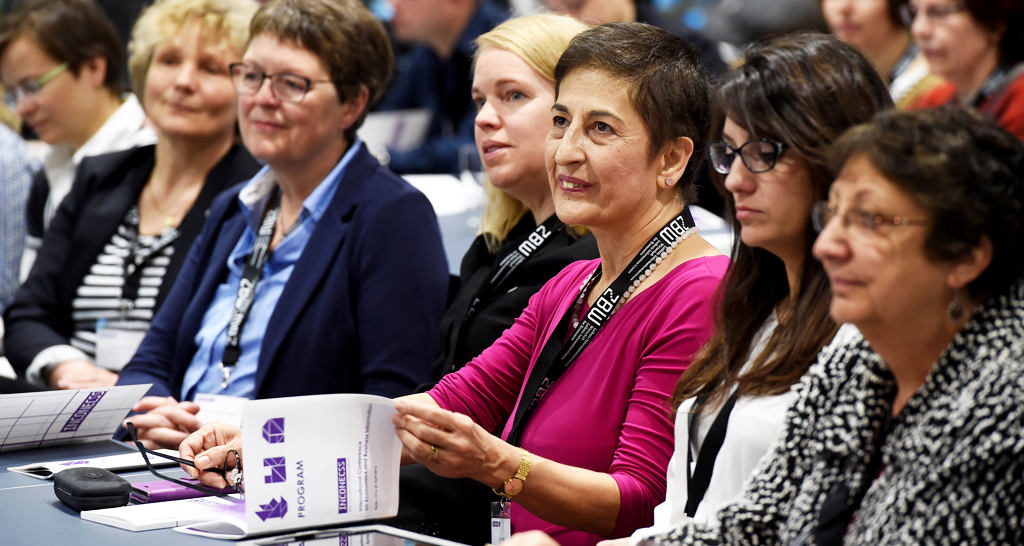
Susanne Dalsgaard Krag (Aarhus University Library) explained how her institution outsourced many services to the State Library in order to be able to cover all the new tasks and topics like information/media literacy, negotiating skills, project management, dealing with plagiarism, e-learning and so on.

Gulcin Cribb (Singapore Management University) invited the participants to think about business models. What is the role of the library in the business of the university and in the academic workflow? The top skills for tomorrow’s librarians in her point of view are advocacy or politics, collaboration, communication, creativity and critical thinking. Everyone in a library workforce should be curious, bold, and visionary but not judgmental. Libraries need agile management with peripheral vision, which also gives room to dissent and experiment.
Daniel Forsman (Chalmers University) pointed out that for him one of the greatest risks of reorganization was that it did not change anything. You should not focus on organizational charts, but on the way people work together: Whatdo people do and why? He recommended to work with iterations, to do things and find out if they work.
When Bill Thompson asked the panel participants the crucial question “I have access to Google and Twitter: What is a library for?”, they came up with a couple of interesting answers. Chris Flegg asked fellow librarians to absorb Google and make it one of the library’s collections. Google has an algorithm bias; libraries have got trust and can advise people on how to use google and other products. Librarians should consider them as tools in their kit. “Turning things into meaningful knowledge, we can teach that.”
There were some different views on whether libraries are too slow and not open enough to change or whether they could be the change agents while universities are very conservative and slow on change.
Another part of the discussion focused on metrics. How valuable are metrics to measure services? Are the metrics really helping libraries? The feelings towards metrics were extremely mixed at least. Discussants admitted that they and their staff hated metrics, but they were very happy when the metrics work in their favour. The danger of metrics was also pointed out. “If people want to attack you they can turn every statistic around”. Others focused more on the opportunities that can be seen in metrics. “The role of the finance office is to ask for metrics. I love metrics, they are completely useless, but they explain the value that we have.”
When asked if libraries still need qualified librarians, the answers focused mostly on the ASK-Principle: Attitude, Skills, Knowledge. One nice quote in this context was “I employ people who have at least half a brain and the right attitude, people who want to overcome obstacles.” It was assumed that with this basis skills and knowledge can be acquired. This may not be true for a number of jobs where very specific skills are needed, but it still conveys the positive action oriented atmosphere of the panel discussion very well.
Which roles can libraries play? How can they support their researchers?
In the session Research Data Management Laurence Horton (London School of Economics) shared experiences of failures and successes in “Setting up a Research Data Management Support Service at LSE”. The presentation comprised a number of entertaining animated gifs to expound the major experiences and feelings. The major barriers for access to data were defined as: cost, demand, licenses, security, anonymization, size, context, culture, terminology (open data, open access, open science, data sharing, data reuse).
“Integrating Library Data Collections with Research Data Services” is a topic at least for research- intensive institutions like EUI. Thomas Bourke (European University Institute) explained how access to data is often restricted in different ways. There is a tension between topics of open data and data protection. Some generalizations can be made saying that finance or micro data are more often restricted, whereas access to macro data is often more or less open – with a grey area of diverse kinds of access restrictions between the extremes.
Sven Vlaeminck presented an analysis conducted by ZBW on research data policies in Germany. Some universities have an explicit policy but it was also pointed out while it is nice to have a policy it is also necessary to have a corresponding infrastructure. DOI registration is organized by subject and the German registration agency for social sciences is da|ra. ZBW in cooperation with GESIS and RatSWD created a Guidebook on Research Data (in German) that helps researchers with a couple of questions of finding, citing and keeping records of research data. One conclusion is that there is a coexistence of activities rather than a coordinated approach and many institutions are in a state of flux.
Examples for Journal and Monograph Publishing
Olga Nottmeyer (IZA), Gunther Maier (WU Wien) and Jan-Peter Wissink (Amsterdam University Press) presented different gold open access solutions in one session. The IZA journals were used as an example of open access, peer reviewed journals that are suitable also for a non-academic audience. IZA journals were launched in 2012. The editors decided to find a publisher with long-term experience in online publishing. The business model is straightforward: IZA pays the fee for each article and authors agree to review up to two papers in return. Starting new journals is hard work since you need to approach authors to get started.
Another journal presented in the session is REGION, the journal of ERSA (European Regional Science Association). It is an academic, double blind peer review journal on regional science. Amsterdam University Press has supported open access for quite a while and publishes open access monographs in economics and social sciences. 554,042 digital books were downloaded in 2014. An interesting statement was: “We have a readers’ crisis since everybody is publishing; no one has time to read.”
Science 2.0 and Open Science Practices
Guido Scherp (ZBW) and Benedikt Fecher (Alexander von Humboldt Institute for Internet and Society and DIW) introduced the concepts and common practices of Science 2.0 and Open Science as well as data sharing practices.
Whereas science 2.0 is concerned with the use of participative internet technologies in all phases of research, open science often uses science 2.0 technologies, but it is also possible without them. The big topics of science 2.0 are new working habits, technological developments and user behavior research. A number of interesting projects from Germany and Europe were captured like handbuch.io (handbooks written in a completely open and collaborative way), offene-doktorarbeit.de (a dissertation that was written openly on the internet) as well as the EU project EEXCESS that tries to bring the content from libraries and museums and the like to the user with a set of plug-ins and extensions.
Also, some drastic examples of misinterpreted data and the possible positive effects of open data and data replication were shared. Study results about data sharing practices, data policies in funding programs, and the replicability of research results were introduced.
Great Community – Lively Talks
One panellist quoted David Lankes in her statement “Bad libraries build collections, good libraries build services, great libraries build communities”. It looked like many “great librarians” and information specialists were present who were all interested in expanding their knowledge as well as their networks. The general impression of the conference was very positive. There was a lively and talkative atmosphere during the breaks and social events in particular. The venues at the Schleswig-Holstein Representative office as well as the Get Together at the 40 seconds and the evening trip on the river Spree were widely enjoyed. Whether it was due to poor wi-fi stability or due to great people remains unclear, but there was definitely a lot of talking and community building at the INCONECSS in Berlin.
Links:
Further reading:
- Lyon, L., (2016). Transparency: the emerging third dimension of Open Science and Open Data. LIBER Quarterly. 25(4), pp.153–171.
- Benedikt Fecher, Mathis Fräßdorf, Gert G. Wagner (2016); Perceptions and Practices of Replication by Social and Behavioral Scientists: Making Replications a Mandatory Element of Curricula Would Be Useful.
- Andreoli-Versbach, Patrick; Mueller-Langer, Frank (2014). Open Access to Data: An Ideal Professed but Not Practised, Research Policy, 43 (9), 1621-1633.
→ Authors: Dr. Tamara Pianos, Karin Wortmann, Andrea Schlotfeldt, Olaf Siegert (ZBW – Leibniz-Informationszentrum Wirtschaft)
Photo Credits: Peter Himsel
View Comments

Launching the European Open Science Cloud: A Virtual Environment for Europe’s 1.7 Million Researchers
On April 15 during the European Open Science Cloud Info Day the European Commission...


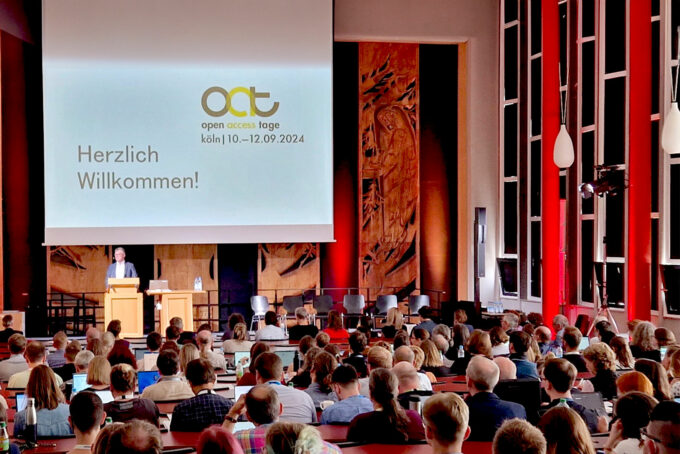

 Bo Alroe
Bo Alroe
AuthorJust to say thanks for this useful recap of what proved to be an interesting and relevant event; glad have attended the first INCONECSS conference.